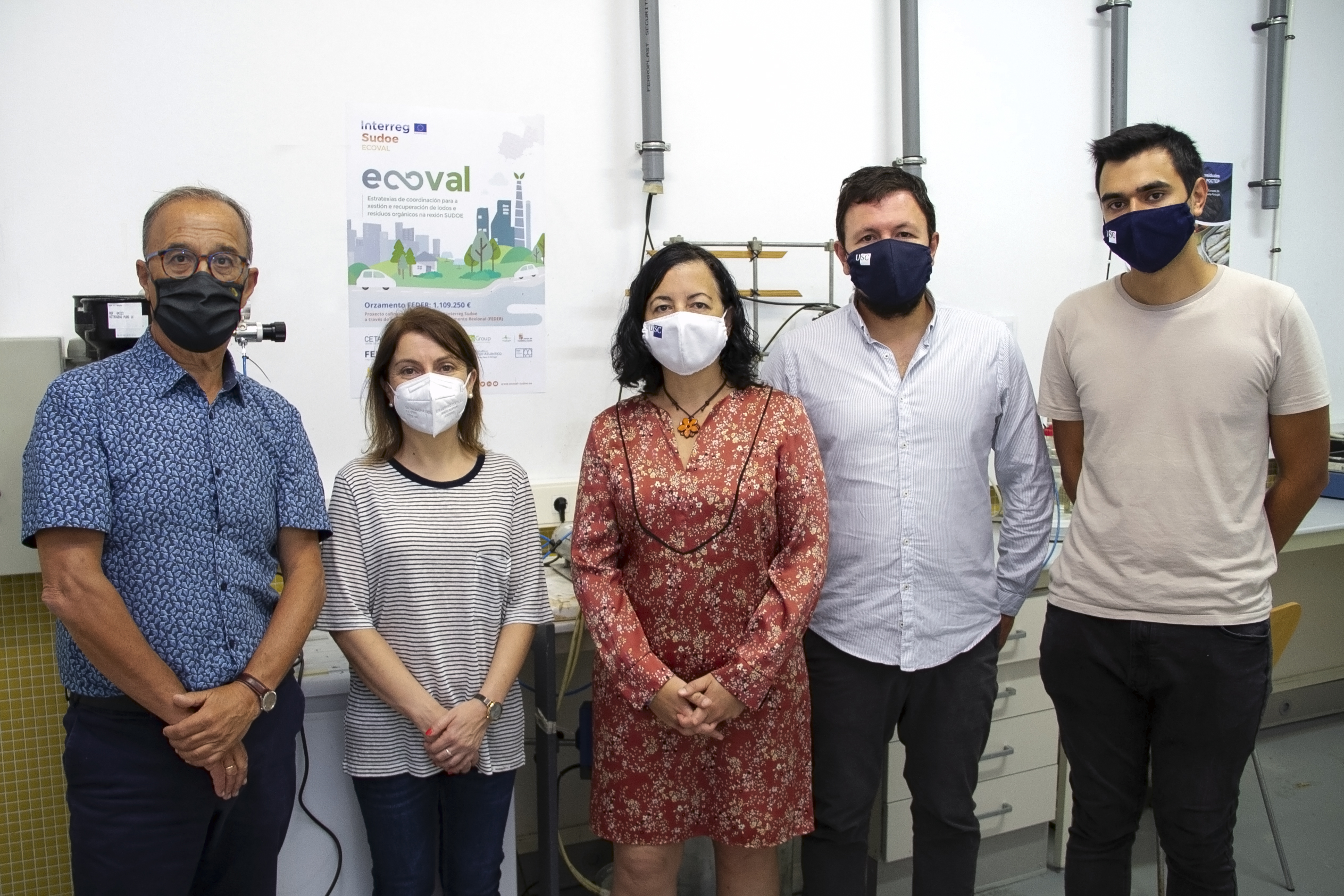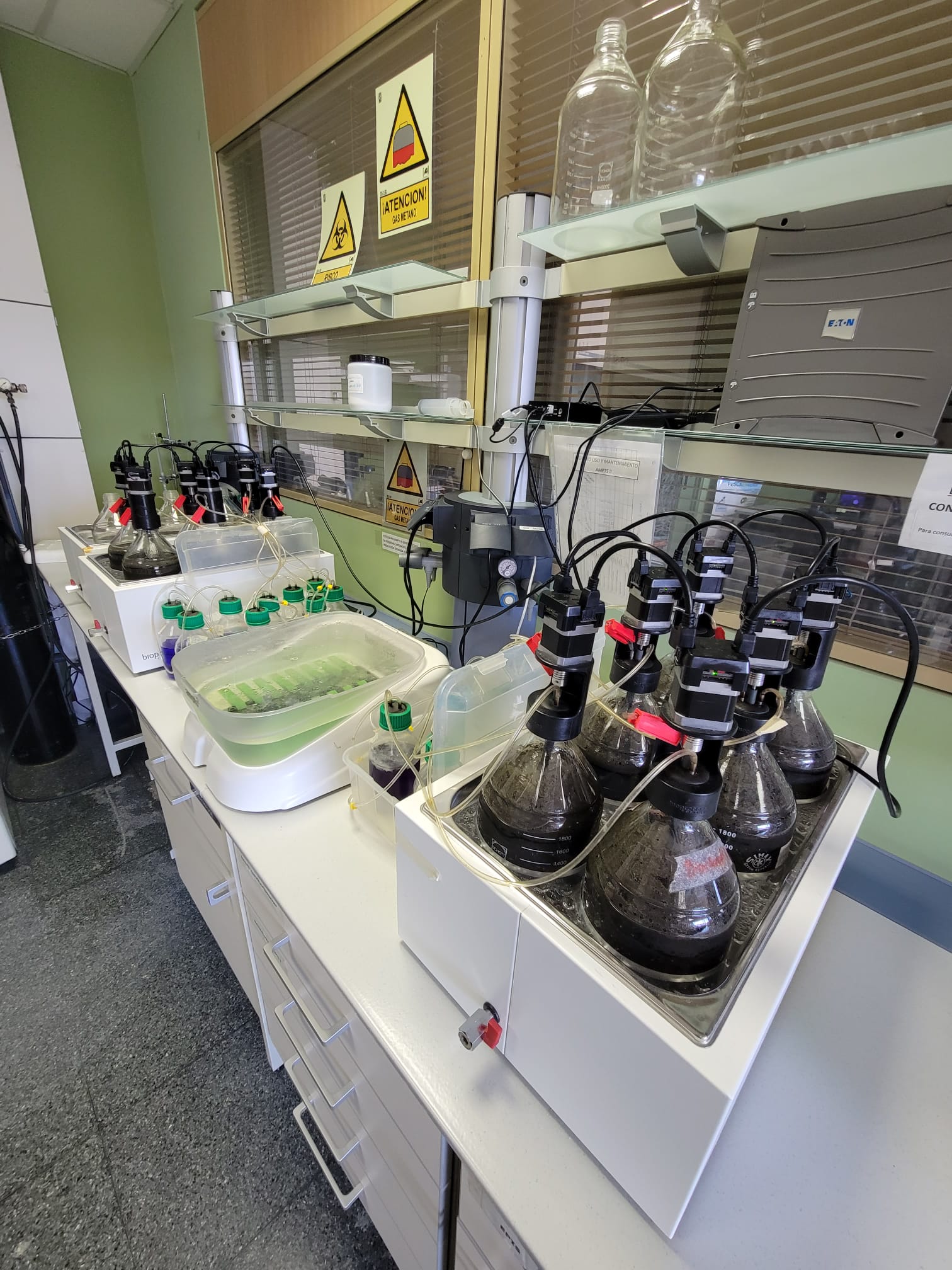
The transformation of waste into value-added products is an ambitious goal in the transition to a circular economy. This is what ECOVAL and other research projects are working towards. Among the possible angles from which to approach this mission, the conversion of organic waste by anaerobic fermentation (the so-called carboxylate platform) is one of the most promising emerging biorefineries that can valorise the organic carbon present in biowaste and sewage sludge into volatile fatty acids (VFA). These can be further processed into chemicals, biopolymers and biofuels, which are needed by a multitude of industries.
This technology, like all emerging technologies, also presents significant barriers. One of them, which prevents the generalisation of the carboxylate platform, is its poor selectivity, which leads to a mixture of acetic, propionic, butyric and valeric acid mainly, and the impossibility of isolating them. The USC Biogroup is tackling the challenge of selective sludge valorisation at ECOVAL with a multidisciplinary approach that integrates experimentation and mathematical modelling. Based on their previously developed tools to predict the fermentation products of sugars and proteins to sludge, they perform sludge fermentation experiments in which they measure how their main components change: the solubilisation of carbohydrates, proteins and lipids, hydrolysis to produce sugars, amino acids and fatty acids, and finally fermentation to VFA.
The final objective is to provide operational guidelines to predict under which conditions (at which pH, with which residence time in the reactor, with which possible co-substrates) the production of each of the VFAs can be maximised, in line with ECOVAL’s WG 2, which focuses on the optimisation of this process.

The Biogroup also wants to answer other questions through the activities developed in the ECOVAL project. These are: how can we select the best strategy for converting waste into resources from an environmental point of view among the technically possible ones; do we always have the guarantee that the environmental cost will be lower compared to the current management when we take into account the complete life cycle of the process?
In recent decades, it has become clear how unsustainable the traditional economic model based on a linear approach is.
Therefore, in contrast, there is a widespread conviction that this model should be replaced by a more sustainable model, in which the value of products, materials and resources is retained in the economy for as long as possible, and the value of products, materials and resources is retained in the economy for as long as possible, and waste generation is minimised: the so-called circular economy. And in this context, methodologies based on life cycle thinking are presented as the appropriate assessment tools to guide the development of processes in its transition.
The transition towards a circular economy model requires a new approach to waste management, which involves changing the way we see waste from a problem to a resource with the potential to develop added value. Considering that organic waste represents around 40% of the total municipal waste produced, the importance of its proper management and recovery is evident.
The possibilities are varied and depend on multiple factors, so ECOVAL, thanks to the Biogroup, will establish reference values, i.e. the quantification of the environmental impacts of current organic waste and sewage sludge management strategies in the SUDOE area, taking into account the regulatory requirements of imminent application. These values will determine the baseline for comparison of the environmental performance of the innovative strategies resulting from the project for obtaining high added value bioproducts from the treatment of the same waste. In this way, we will have concrete metrics with which to evaluate the impact of the new management system and the products derived from it in environmental terms, one of the tasks of WG 6: “Replicability and transfer of the business model and its environmental and economic assessment”.

